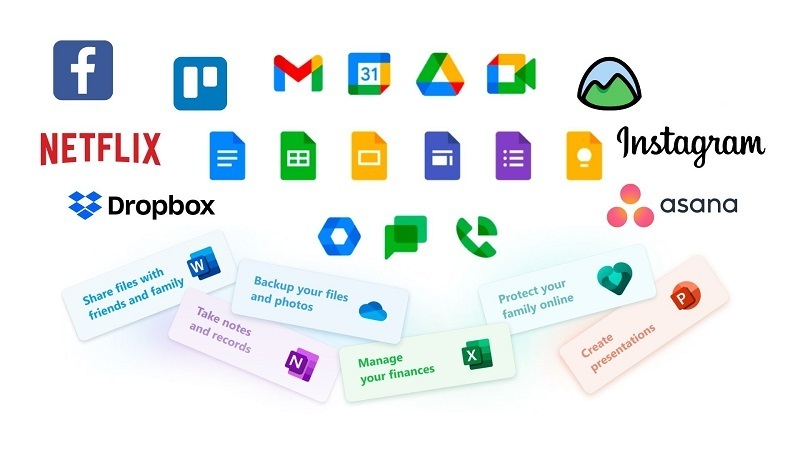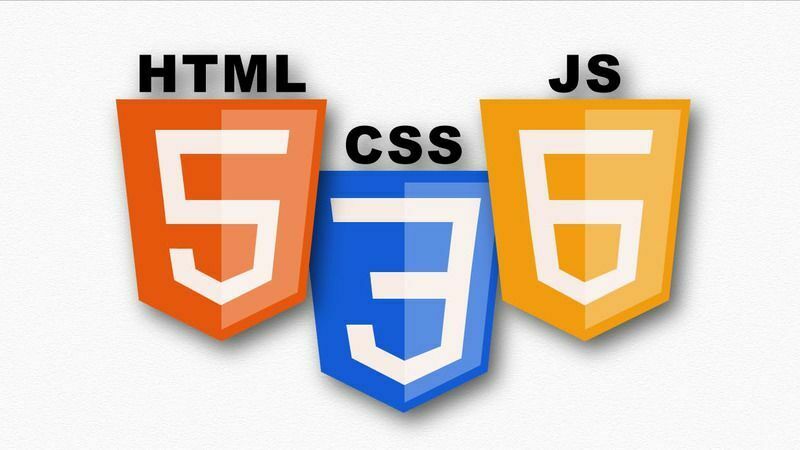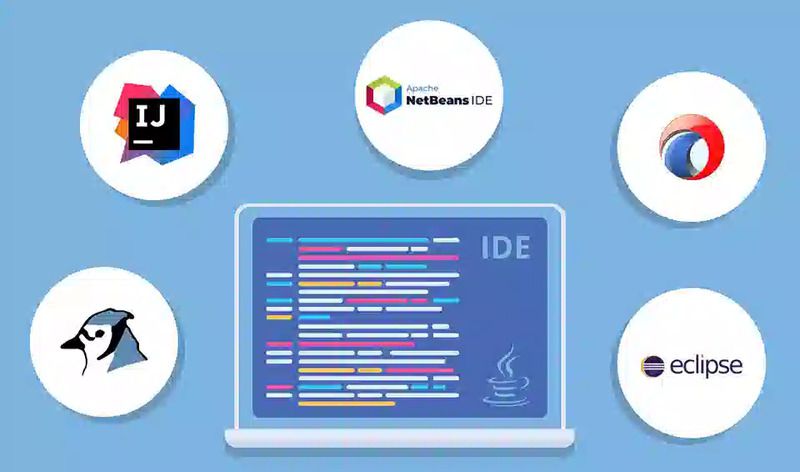There is a widespread misconception that mobile apps and web apps are interchangeable, but they are not. Businesses can create either a web app or a mobile app, or both.
Not only do mobile apps and web apps have different user experiences, but they also have different development and deployment processes. In this Nexle Corporation article, let’s compare the web app vs mobile app to see how they differ!
Definition of Web App vs Mobile App
Web Application
To fully comprehend web applications, you must first grasp the basic concept. This is critical for distinguishing it from website apps and mobile apps. Consider it a server-based remote-hosted application. The application’s interface is delivered over the Internet via web browsers.
To be more specific, a web application runs on a website using web browsers and technologies to perform direct operations over the Internet. These web apps are interactive, enabling users to receive, input, or manipulate data.

A web application runs on a website and is accessed using web browsers.
Web apps serve various purposes and cater to different entities, from small businesses to large organizations and individuals. Typical examples of web apps include:
- Online shopping websites
- Software platforms
- Editing tools
- Social networking sites
- eCommerce platforms
- And more…
These platforms enable users to interact, share, post content, and perform specific actions that web apps provide.
Mobile Application
A mobile app is a specially designed software for devices like tablets or smartphones. It allows users to access the content they want on their mobile devices easily. Developers create mobile apps with a user-friendly interface where people can engage, read news, shop, and do other things.
A wide range of businesses are now using mobile apps to reach out to potential customers. This has led to the emergence of countless apps across different fields and industries.

Today, mobile applications from a variety of industries and businesses have appeared
Currently, in the mobile app design market, two main types are predominantly used:
Native Mobile App
These are the apps you usually download from app stores on your phone. When you need to use them, you simply access the downloaded app. Facebook is a prime example of a Native Mobile App. Native Mobile Apps offer users excellent experiences but come with higher costs, development time, and app maintenance. Content upgrades for these apps are also more challenging. Notably, Native apps can function offline as well.
Hybrid Mobile App
Hybrid Mobile Apps combine notable features of web apps and native apps. These web apps are developed using web programming languages like CSS3, JavaScript, or HTML5 and are wrapped in an external container layer to mimic native mobile apps. They are then available for download on app stores.
Developing Hybrid Mobile Apps is much easier compared to Native Mobile Apps, and they offer users a great experience as well. Additionally, updating content is straightforward, as it’s synchronized from the app’s website.
How do Web vs Mobile Applications Work?
Web Application
A unique aspect of web applications compared to mobile apps is their ability to be accessed without separate installation on desktop computers. They can be accessed through web browsers by following these steps:
- Users send requests to the web server through a browser and an internet connection.
- The server receives and processes the request.
- The requested information is sent from the web application server to the server.
- The web server returns the requested result and displays it on the user’s browser.
Read more: Healthcare Web Development: Use Cases and In-depth Guide (2023)
Mobile Application
Mobile applications often operate faster and provide users with a superior app browsing experience. Additionally, they utilize less internet data. The working principle of a mobile app can be simplified as follows:
- Users download the app from an app store.
- The app needs a certain amount of data and storage room. Once you’ve confirmed your phone has enough space for the app, you can start the download.
- App access may need login or registration.
- The app displays content and delivers its service experiences to users.
Read more: eCommerce App Development: Ultimate Guide and Use Cases
Examples of Web App vs Mobile App
Web Application
Web applications serve a multitude of purposes across various domains, including:
- Word Processors: Google Docs, Microsoft Word Online, Zoho Writer
- Spreadsheets: Google Sheets, Microsoft Excel Online, Zoho Sheet
- Video and Photo Editing Tools: Canva, Pixlr, Adobe Spark
- File Conversion Utilities: Smallpdf, OnlineConvertFree, Convertio
- File Scanning Services: CamScanner, Scanbot, Online Scanner
- Email: Gmail, Outlook.com, Yahoo Mail
- Google Apps: Gmail, Google Docs, Google Sheets, Google Slides
- Office 365: Outlook, Word Online, Excel Online, PowerPoint Online
These web applications provide users with convenient and accessible tools to fulfill various tasks and activities within their respective fields.

Web application examples
Mobile Application
Every day, millions of mobile app downloads take place. Below are some domains with strong mobile app growth and popular apps in those domains:
- Social Media: Facebook, Instagram, Twitter, TikTok
- Messaging: WhatsApp, Messenger, Slack, Telegram
- Entertainment: YouTube, Netflix, Spotify, Disney+
- E-Commerce: Amazon, eBay, AliExpress, Etsy
- Productivity:
- Microsoft Office Suite (Word, Excel, PowerPoint)
- Google Workspace (Docs, Sheets, Slides)
- Evernote
- Todoist
Health and Fitness: MyFitnessPal, Nike Training Club, Headspace, Calm
Programming Languages of Web Apps vs Mobile Apps
Web Application
To deliver a seamless user experience, popular programming languages for web application development include:
- JavaScript
- Python
- Ruby
- PHP
- Java
- TypeScript
The mentioned programming languages are extensively used in the development of dynamic and interactive web applications that cater to a diverse range of user demands and requirements.
Mobile Application
There are a lot of programming languages to choose from today. The method you choose relies on things like your business goals, the features of the operating system you choose as a base, the type of program, and its needs. A lot of the same methods that are used for web development can also be used for mobile computing.
Popular languages for creating apps for mobile devices include:
- IOS: Objective-C & Swift, HTML5, Python, C++, JavaScript, Swift
- Android: Python, C / C ++, Java, JavaScript, Kotlin
How to Build Mobile Apps vs Web Apps Guide
Web Application
Web applications commonly use CSS, HTML5, and JavaScript. Unlike mobile app development, web applications do not have a standardized software development kit. However, developers can use various templates.
- When developing web applications, the process tends to be simpler and faster than mobile apps. However, web applications offer a wider range of features and are easily accessible to users.
- PWAs (Progressive Web Apps), one of the recent emerging trends, enable browsers to function like mobile apps.
- However, OS (Operating System) support and functionality for PWAs are still limited compared to true native mobile apps.

CSS, HTML5, and JavaScript are popular languages used in web applications
Mobile Application
Developing mobile apps can be more expensive than web app development, especially if you want your app to be available on multiple platforms. But many businesses find this investment worth it because mobile apps offer various benefits. They usually provide a faster and more user-friendly browsing experience with advanced features that web apps may lack. This helps create an engaging environment for users.
- Depending on the platform you want to build a native mobile app for, it can be developed using specific programming languages and Integrated Development Environments (IDE)
- Apple devices, such as iPhones and iPads, run on the iOS operating system. Therefore, Apple’s applications are typically developed using programming languages like Swift or Objective-C, and they use the Integrated Development Environment (IDE) known as Xcode.
- Android applications are typically written in Java and are developed using development environments such as Eclipse IDE or Android Studio.

IDE provides an all-in-one environment for writing, testing, and debugging code
The Difference Between a Web App vs Mobile App
Now that we’ve talked about the main differences between a web app and a mobile app, let’s talk about the pros and cons of each:
Web Application
Pros:
- Web applications may be accessible online using a web browser without the requirement for downloading and installation.
- Compared to mobile applications, they need less maintenance.
- Web apps can update themselves without the need for manual updates by users.
- They are more quickly and easily developed than mobile apps.
- Web applications do not need app store approval, allowing for faster deployment.
Cons:
- Web applications might not work without an internet connection.
- They often provide less sophisticated features than native mobile apps.
- Web applications may not be as easily found in app stores as mobile apps.
- They might be of worse quality and security than well-vetted mobile applications from app stores.
Mobile Application
Pros:
- In general, mobile apps are faster than web apps.
- Mobile apps possess enhanced functionality compared to web apps. They can tap into and utilize the resources of the mobile device, enabling them to offer a wider array of features and experiences.
- Mobile apps can work even without an internet connection. This means users can still access specific content and features.
- Mobile apps are safe and secure because they must go through app store approval processes.
- Mobile apps are easier to develop due to the availability of developer tools, interface elements, and software development kits (SDKs)
Cons:
- Higher cost compared to web apps.
- Higher maintenance and update expenses.
- Compatibility with different platforms, such as iOS and Android.
- Difficulty in getting a native app approved by the app store.
So, web app vs mobile app: which is the better? Choosing between a mobile app and a web app isn’t a straightforward decision, as it heavily relies on your unique requirements and which set of advantages and disadvantages better suits those requirements. If you want more specific help and insights, please do not hesitate to contact Nexle Corporation. Our team of experts is always available to provide valuable advice and support to help you make an informed decision for your project.
Table Of Content


